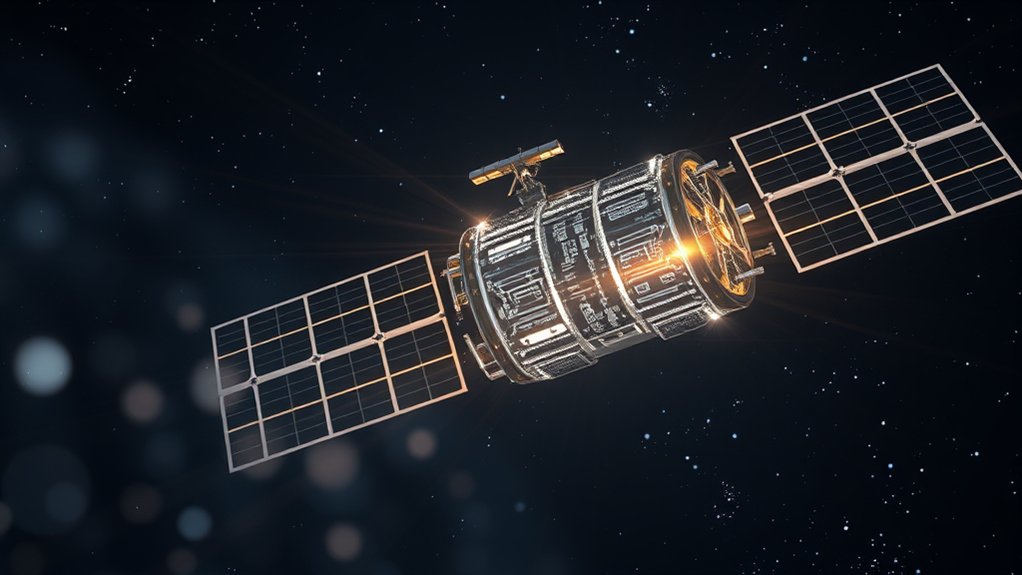As concerns mount over cybersecurity vulnerabilities, recent assessments reveal significant flaws in China’s quantum satellite systems, potentially undermining the integrity of secure communications. The country’s efforts in quantum technology, particularly with satellites like Mozi, now face scrutiny owing to critical weaknesses. Although Mozi follows a trend of microsatellite development, weighing only 23 kilograms, its capacity for reliable operation is compromised. Transmission risks, such as the collapse of quantum-entangled particles over long distances, may threaten the overall integrity of these advanced systems.
Furthermore, early-stage quantum hardware is hindered by environmental interference and limitations in error correction, resulting in lower operational reliability. Current quantum key distribution (QKD) protocols, which are vital for secure communications, utilize complex error correction codes like LDPC. These protocols, even though advanced, are vulnerable if not implemented correctly, meaning covert interception of keys remains a tangible threat. Environmental disturbances are particularly problematic for long atmospheric paths used in QKD, raising questions about the feasibility of nationwide applications. This issue is exacerbated by recent developments in the deployment of quantum satellites, which highlight the ongoing challenges in scalability and security. Advanced encryption methods are essential in securing data but remain susceptible to key interception.
Early quantum hardware faces challenges from environmental interference and error correction limitations, jeopardizing the reliability of secure communications.
Notably, any compromised data exchange between ground stations and satellites could lead to significant security breaches, allowing hostile entities to intercept critical keys. The risk of “side-channel” attacks, which threaten not only quantum systems but also classical encryption methods, introduces further complexity to security assessments. Without a universally standardized QKD system, interoperability and security assurance are inadequately vetted.
The implications extend beyond theoretical vulnerabilities; they touch on national security. Potential backdoors in encryption systems may facilitate espionage, jeopardizing military and financial data. China’s advancements in quantum technology suggest an increasing capacity for cyber warfare, amplifying risks in intelligence gathering.
As scalable quantum satellite networks emerge, the attack surface broadens, exposing both quantum and classical systems to increased threats. Therefore, implementing effective key distribution across vast networks becomes vital to mitigating these risks and maintaining global security integrity.









